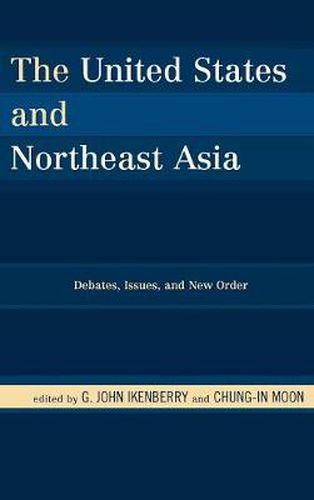Readings Newsletter
Become a Readings Member to make your shopping experience even easier.
Sign in or sign up for free!
You’re not far away from qualifying for FREE standard shipping within Australia
You’ve qualified for FREE standard shipping within Australia
The cart is loading…






Since World War II, the United States has played a crucial role in shaping Northeast Asian politics and economics. However, as this authoritative book shows, the Cold War’s demise, September 11, and America’s major strategic realignments have unleashed seismic changes in the region. China’s rise, Japan’s quest for a normal state, and the North Korean nuclear quagmire are also potential flashpoints. Collective memories of past aggression as well as resurgent nationalism further complicate regional dynamics. But hopeful signs abound, as deepening economic interdependence, expanding social and cultural exchanges, and the proliferation of informal economic, social, and cultural networks have improved the chances for a peaceful evolution to a liberal and stable region.
Contributions by: Vinod K. Aggarwal, Paul Bacon, Avery Goldstein, G. John Ikenberry, Takashi Inoguchi, Ki-Jung Kim, Myongsob Kim, Woosang Kim, Yongho Kim, Min Gyo Koo, Michael Mastanduno, Chung-in Moon, Katharine H. S. Moon, Seung-won Suh, and William C. Wohlforth
$9.00 standard shipping within Australia
FREE standard shipping within Australia for orders over $100.00
Express & International shipping calculated at checkout
Since World War II, the United States has played a crucial role in shaping Northeast Asian politics and economics. However, as this authoritative book shows, the Cold War’s demise, September 11, and America’s major strategic realignments have unleashed seismic changes in the region. China’s rise, Japan’s quest for a normal state, and the North Korean nuclear quagmire are also potential flashpoints. Collective memories of past aggression as well as resurgent nationalism further complicate regional dynamics. But hopeful signs abound, as deepening economic interdependence, expanding social and cultural exchanges, and the proliferation of informal economic, social, and cultural networks have improved the chances for a peaceful evolution to a liberal and stable region.
Contributions by: Vinod K. Aggarwal, Paul Bacon, Avery Goldstein, G. John Ikenberry, Takashi Inoguchi, Ki-Jung Kim, Myongsob Kim, Woosang Kim, Yongho Kim, Min Gyo Koo, Michael Mastanduno, Chung-in Moon, Katharine H. S. Moon, Seung-won Suh, and William C. Wohlforth